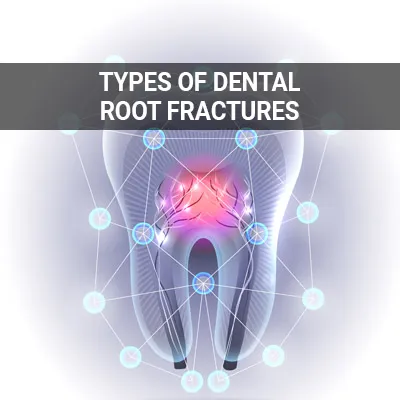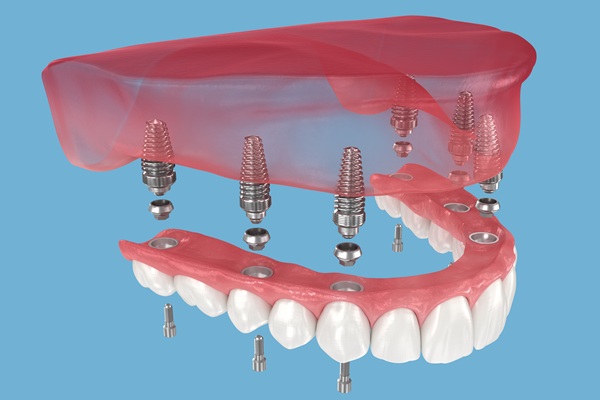What is an Endodontist Vista, CA
You may be vaguely familiar with the term "endodontics" but unclear about exactly what this field of dentistry entails. While many general dentists perform endodontic procedures, an endodontist is a specialized dentist with additional training. General dentists and endodontists work together to help manage tooth pain.
General dentists also make referrals to endodontists. The American Academy of Endodontists (AAE) reports that general dentists typically refer about half of their patients in need of root canals to an endodontist. Our team at Imagine Dental Group & Implant Center in Vista and the surrounding area can provide more information on endodontic care and possible services you may need.
Call us at (760) 407-6719 to learn more.
Who Can Become an Endodontist
Endodontists are dental specialists who focus on root canal treatment, diagnosing tooth pain, and other procedures involving the tooth's interior. In addition to completing dental school, endodontists must undergo at least two years of specialist training. This knowledge allows them sometimes to preserve teeth that they would have otherwise lost.
Altogether, endodontists complete six to seven years of postgraduate schooling. Their specialist training focuses on diagnosing, treating, and preventing diseases of the dental pulp. This also makes them extraordinarily proficient in pain management and utilizing cutting-edge technologies in their practice.
“In addition to completing dental school, endodontists must also undergo at least two years of specialist training.”
Endodontists vs. Dentists
Although all endodontists must finish dental school, not all dentists must train in endodontics. Thus, while all endodontists are dentists, very few dentists are endodontists. By focusing their expertise on the tooth's interior, endodontists are typically more experienced in root canal treatments than dentists.
The average endodontist performs 25 root canal treatments per week — a far cry from the average dentist's two. Furthermore, since endodontists dedicate themselves to diagnosing and treating tooth pain, they also tend to be more skilled in treating difficult-to-diagnose oral and facial pain issues.
“Thus, while all endodontists are dentists, very few dentists are endodontists.”
What Endodontists Do
"Endo" is Greek for "inside," while "odont" is Greek for "tooth." As such, endodontic treatments are any treatments that involve the inside of the tooth. The interior of the tooth is also known as the tooth's pulp. Accordingly, endodontists are specialists in saving teeth. Some standard endodontic services involve root canal treatment and endodontic retreatment.
Root canal treatment is a relatively simple procedure that relieves dental pain and saves the tooth. This treatment is necessary to remove any inflammation or infection in the pulp. If this first procedure fails or the tooth becomes reinfected, then endodontic retreatment is possible. During this process, the endodontist must reopen the tooth to clean and fill the canals with a temporary filling.
“… endodontic treatments are any treatments that involve the inside of the tooth (also known as the tooth’s pulp).”
Check out what others are saying about our dental services on Yelp: What is an Endodontist in Vista, CA
More Severe Endodontist Treatments
In addition to root canals and retreatments, endodontists can provide more severe treatments to help save a tooth. An endodontist can perform a surgery known as a root-end resection (or apicoectomy) that removes part of the tooth root that may have become infected or abscessed.
Endodontists are also skilled at treating traumatic dental injuries and saving teeth that may have become cracked. Even though the best tooth is a natural tooth, endodontists are also skilled at installing dental implants when they cannot save a natural tooth.
“An endodontist can perform a surgery known as a root-end resection (or apicoectomy) that removes part of the tooth root that may have become infected, or abscessed.”
Questions Answered on This Page
Q. What are the qualifications to become an endodontist?
Q. What is the difference between endodontists and dentists?
Q. What are some standard endodontic services?
Q. Can endodontists help with more severe issues?
Q. When should I see the endodontist?
People Also Ask
Q. Is increased sensitivity to temperature a sign that endodontic surgery is necessary?
Q. What are the benefits of a root canal?
Q. Are root canals a safe and common procedure?
Q. What are examples of severe endodontist treatments?
Q. What are some of the signs indicating a need for tooth extraction?
When to See an Endodontist
Sometimes the patient may have a tooth problem better managed by an endodontist than a general dentist. If the patient has been referred to an endodontist by your general dentist, it is critical to follow up for a consultation. That may mean the patient may need a more complex root canal.
Additionally, if having severe tooth pain or a traumatic tooth injury, the patient may be best served by an endodontist. If the patient has previously had a root canal in a tooth and is having new pain in the same area, retreatment performed by an endodontist may be necessary.
“If the patient has previously had a root canal in a tooth and is having new pain in the same area, retreatment performed by an endodontist may be necessary.”
Frequently Asked Questions
Q. How common are root canals?
A. Root canals are slowly becoming a more common procedure, as the AAE reports that an average endodontist performs 25 root canals each week. Root canals are a crucial treatment to help prevent the further spread of infection or damage to the surrounding teeth.
Q. Does an endodontist perform more root canals than a dentist?
A. In general, yes. Because endodontists focus primarily on root canals, they tend to conduct a higher volume of these procedures. As the AAE estimates, the average endodontist performs 25 root canals each week, whereas the average dentist performs only two. Thus, seeking a professional endodontist can provide the specialized services the patient needs.
Q. What is the satisfaction rate of endodontists?
A. Endodontists are well-respected by their professional colleagues and patients alike. The AAE reports that 89% of patients remain satisfied after having a root canal performed by an endodontist; 94% of dentists have a positive impression of the care provided by the endodontists with whom they collaborate.
Q. How can I learn more about endodontics?
A. The field of endodontics is represented by the American Academy of Endodontists. Their motto is that endodontists are specialists in saving teeth. To learn more, you can visit the AAE website, which has several educational videos.
Q. Are root canal treatments painful?
A. Several endodontic procedures are designed to relieve the pain of toothaches derived from pulp inflammation or infection. Today's endodontists know more about pain management than ever. Now, most patients report little discomfort during the procedure.
Endodontic Terminology
Call Us Today
Choosing the right dentist can be intimidating. Our team at Imagine Dental Group & Implant Center can help. Call us today at 760-407-6719 to schedule an appointment or learn more about our services.
Helpful Related Links
- American Dental Association (ADA). Glossary of Dental Clinical Terms. 2025
- American Academy of Cosmetic Dentistry® (AACD). Home Page. 2025
- WebMD. WebMD’s Oral Care Guide. 2025
About our business, license, and website security
- Imagine Dental Group & Implant Center was established in 2019.
- We accept the following payment methods: American Express, Cash, Check, Discover, MasterCard, and Visa
- We serve patients from the following counties: San Diego County
- We serve patients from the following cities: Vista, Carlsbad, San Marcos, Oceanside, Escondido, Bonsall, Encinitas, Solana Beach, Fallbrook, Valley Center and Poway
- CA (License #45944). View License Information and Specifics
- National Provider Identifier Database (1659410199). View NPI Registry Information
- Norton Safe Web. View Details
- Trend Micro Site Safety Center. View Details
Back to top of What is an Endodontist












